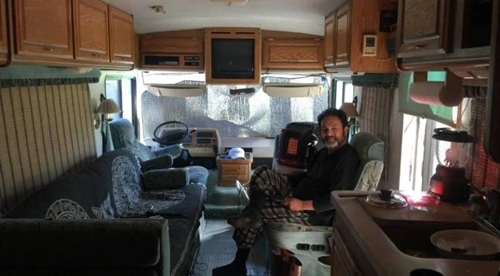No, it is not inherently illegal to live in a camper in the United States, but the legality depends on where you park and the local zoning laws. While living in a camper offers flexibility and affordability, specific regulations govern this lifestyle, and violating these rules can result in fines or eviction.
Legal Framework for Living in a Camper
Living in a camper is subject to a patchwork of federal, state, and local regulations. Understanding these laws is crucial to ensuring compliance and avoiding legal trouble.
1. Zoning Laws
Zoning laws are the primary legal hurdle for those wanting to live in a camper. These laws determine how land can be used in different areas and often prohibit extended living in recreational vehicles (RVs) outside of designated zones.
- Residential Zones: Many residential areas do not allow campers to be used as permanent residences, even if parked on private property.
- Campgrounds and RV Parks: Most municipalities permit living in a camper if it is in an RV park or campground designed for long-term stays.
2. Utility and Safety Requirements
Some states and municipalities impose additional regulations to ensure campers meet minimum safety and utility standards, such as:
- Access to water and sanitation services.
- Proper electrical hookups.
- Compliance with building or housing codes.
3. Public Land Regulations
Parking and living in a camper on public land, such as national forests or Bureau of Land Management (BLM) land, is generally allowed for short periods (e.g., 14 days) but prohibited for long-term use.
4. HOA and Community Rules
In some areas, homeowners’ associations (HOAs) or neighborhood covenants may restrict living in a camper, even on private property.
Situations Where Living in a Camper Becomes Illegal
1. Parking in Unauthorized Areas
Living in a camper on city streets, public parks, or non-designated areas is typically illegal. Many cities enforce strict rules to prevent individuals from using public spaces as permanent living quarters.
2. Violating Zoning Codes
Using a camper as a full-time residence in areas zoned for single-family homes or other restricted uses can lead to eviction or fines.
3. Safety Violations
If a camper does not meet safety standards, local authorities may prohibit its use as a residence.
States and Cities with Notable Regulations
- California: Many cities, including Los Angeles and San Francisco, have implemented strict laws against living in vehicles on public streets due to concerns about homelessness and sanitation.
- Florida: While some areas allow RV living in designated zones, local ordinances often restrict using campers as primary residences on private property.
- Texas: Zoning laws vary widely, with rural areas being more lenient than urban centers.
Recent Legal Developments
- Tiny Homes and RV Laws: With the rise of tiny homes and off-grid living, some states and municipalities have updated laws to accommodate alternative housing options, including campers.
- City Ordinances on Vehicle Living: Cities like Portland and Seattle have introduced safe parking programs, providing designated areas for people living in vehicles.
Pros and Cons of Living in a Camper
Pros
- Affordable housing alternative.
- Mobility and freedom.
- Simplified lifestyle with fewer possessions.
Cons
- Limited legal parking options.
- Lack of access to utilities in certain areas.
- Risk of eviction or fines in restricted zones.
Tips for Legal Camper Living
- Research Local Zoning Laws: Verify that your intended location allows living in a camper.
- Use Designated RV Parks: These locations are the safest and most compliant for long-term camper living.
- Ensure Utility Access: Set up proper water, sewage, and power connections to meet local requirements.
- Comply with Building Codes: Make necessary modifications to your camper to meet safety standards.
Related FAQs
Q1. Can I live in a camper on my own property?
Ans: Yes, but it depends on local zoning laws. Some areas allow it with permits, while others prohibit it outright.
Q2. Is it legal to live in a camper in an RV park?
Ans: Yes, living in an RV park is generally legal as long as the park is zoned for residential use and you comply with park rules.
Q3. Can I park my camper on public land for long-term living?
Ans: No, most public lands have time limits (e.g., 14 days) for camping or parking a camper.
Q4. What are the penalties for living in a camper illegally?
Ans: Penalties can include fines, eviction, and towing of the camper in extreme cases.
Q5. Do I need a permit to live in a camper?
Ans: Permits may be required in certain areas, especially if the camper is on private property or used as a permanent residence.


